Go Lean Commentary
At the beginning of World War II, it became obvious, very early, that Germany was going to lose. Why?
Because they had to fight battles … alone … on two fronts:
- On the West, against the Allied Forces (Britain, French, Americans, etc.)
- On the East, against the Communist-bloc, the Soviet Union (Russia, and 15 unified republics).
That was a strategic and tactical disadvantage for Nazi Germany! Time was to catch up with them eventually.
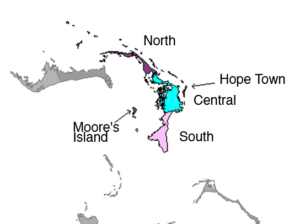 There is a parallel situation today in the Caribbean, in the Northern Bahamas community of Abaco in particular. They have battles on two fronts: A hurricane and a pandemic.
There is a parallel situation today in the Caribbean, in the Northern Bahamas community of Abaco in particular. They have battles on two fronts: A hurricane and a pandemic.
- Climate Change – infused storms like Hurricane Dorian in September 2019
At 16:40 UTC on September 1, Dorian made landfall on Great Abaco Island in the Bahamas, with one-minute sustained winds of 185 mph (298 km/h), wind gusts over 220 mph (355 km/h), and a central barometric pressure of 910 millibars (27 inHg),[26][27] as Dorian reached its peak intensity during landfall.[28] Storm chaser Josh Morgerman observed a pressure of 913.4 mbar (26.97 inHg) in Marsh Harbour.[29] Dorian’s forward speed decreased around this time, slowing to a westward crawl of 5 mph (8.0 km/h).[28] At 02:00 UTC on September 2, Dorian made landfall on Grand Bahama near the same intensity, with the same sustained wind speed.[30] Afterward, Dorian’s forward speed slowed to just 1 knot (1.2 mph; 1.9 km/h), as the Bermuda High that was steering the storm westward weakened. Later that day, the storm began to undergo an eyewall replacement cycle to the north of Grand Bahama; the Bermuda High to the northeast of Dorian also collapsed, causing Dorian to stall just north of Grand Bahama.[31][32] Around the same time, the combination of the eyewall replacement cycle and upwelling of cold water caused Dorian to begin weakening, with Dorian dropping to Category 4 status at 15:00 UTC.[33] Due to the absence of steering currents, Dorian stalled north of Grand Bahama for about a day.[34][35] – Wikipedia
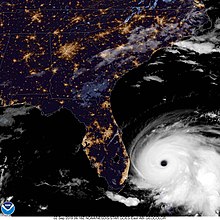
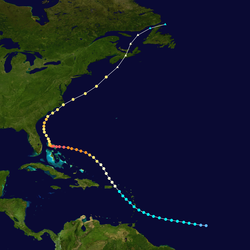
- Pandemic – Coronavirus COVID-19
Consider the actuality of life in the Bahamas during this crisis as related in a previous blog-commentary; (this reporting describes the situation on the ground in the Bahamas as miserable):- Jobs are affected – most private businesses, including tourist resorts, are closed or curtailed.
- Retail food prices increase because of higher inventory-carrying costs.
- Hospitals and public safety institutions are overwhelmed with COVID cases: testing, tracing, therapeutics and terminal patients.
- Government Shutdown – No administrative processing, at all; no passport processing, no business registrations, etc.
Abaco is failing miserably on both fronts. It is not wise to bet that they will win, overcome, survive or thrive. 🙁
These are not just our thoughts alone; see these 2 articles here depicting the acute crisis on the ground in Abaco:
Title # 1: Everything Is Not Okay in the Bahamas… Not by a Long Shot – Surfline
By: Matt Pruett
For those who don’t regularly deal with natural disasters like hurricanes, earthquakes, wildfires or tornadoes, it’s easy to think of these violent events as one-offs, cosmic flukes, and after a year or so passes, old news. When in reality, the devastating effects from these catastrophes can last many, many years after the initial deathblow, and casualties continue to stack.
It’s been a little over a year since the prolonged and record-breaking Category 5 Hurricane Dorian blasted the Bahamas with 185mph maximum sustained winds — effectively become the most intense tropical cyclone to ever strike the islands, the costliest event in Bahamian history with $3.4 billion in damage, and the worst natural disaster in the country’s history — leaving at least 70,000 people homeless and 74 dead (although the exact death toll is unknown, as 245 people were still missing as of April 2020).
But there is compassion, especially from Floridian surfers who’ve been island-hopping this area for generations. And with compassion comes aid, and with aid comes relief, and with relief comes recovery. At least that’s what we hope.
“There are very few moments in life when we as individuals have the opportunity to do something larger than ourselves and help,” explains acclaimed filmmaker Wesley Dunham-Brown, who co-created the surfing documentary films Peel: The Peru Project and Chasing Dora before starting his own production company, Arora Entertainment. “I believe this is what we were ultimately put on this planet to do. When Hurricane Dorian decimated the Bahamas, and more specifically the area of Hope Town, it gave us the opportunity to do just that. Our small group of passionate filmmakers at Arora Entertainment went down to help these people, tell their incredible stories of loss, grief, love and compassion and share their unrelenting faith, will and perseverance to see the Bahamas rebuilt.”
Respected for their storytelling techniques, industry contacts, and ability to spread awareness, Brown and his directorial partner Bobby Pura were hired by Hope Town Rising — a grassroots initiative of the Community Assistance Foundation focused on supporting and rebuilding Elbow Cay — to focus their lenses on this devastated area in the way of a full-length documentary, “This is Hope Town.” The film shadows a close-knit community of Bahamians as they join together to work around-the-clock in terrible conditions to rebuild their lives, while recounting the damage, emotional toll and physical wreckage in heart-wrenching interviews. Brown and Pura immediately tapped longtime Bahamas traveler and professional surfer Cory Lopez to serve as ambassador for the mission.
“I spent a lot of time in the Bahamas over the years,” says Cory. “I started going there when I was a kid, and one year Andy [Irons] and I spent six weeks there. So I have a lot of great memories from the place. Looking at how big that storm was, I expected it to be bad. And of course I heard stories and saw pictures of how bad it ended up being. But once you get down there and actually see the severity of it, a year later… it’s catastrophic, man. It’s been such a slow process of removing debris off the island while getting supplies that are needed — and food — on to the island. And unfortunately with COVID-19, it’s just been a double-whammy for those people. At this rate it’ll take two to three years to rebuild, five years to bring this place back.”
“With disasters like this, it’s like a lot of people will donate right away, but then three months later there’s another disaster somewhere else in the world,” Cory adds. “So hopefully this film will bring another boost of money to the Bahamian people. And they were very grateful that we went down there to give them a voice and bring attention to the problems they’re facing.”
“This is not simply a documentarian journey, it’s a human journey,” Brown continues. “One that demonstrates to the world that we all possess the power to affect change, and a human responsibility to assist those in need wherever they may be. This is our time and opportunity to change things for the people of Hope Town, and to show the world what the people of the Abacos, and those who are doing everything in their power to help them, are truly made of.”
For more information, to watch the movie or to make a donation, visit Hope Town Rising.
Source: Posted September 12, 2020; retrieved September 19, 2020 from: https://www.surfline.com/surf-news/everything-not-okay-bahamas-not-long-shot/95982
————
VIDEO – This is Hope Town Trailer – Extended Cut (3:34) – https://youtu.be/CfqqaHzFO_A
————————-Title # 2: Abaco in “precarious situation” with COVID, ongoing reconstruction — says MP
NASSAU, BAHAMAS — Central and South Abaco MP James Albury said because the construction industry represents a major hotspot for COVID-19, Abaco is in a “precarious situation” as reconstruction forges on.
Infections on the island continue to rise, albeit more slowly in recent weeks.“It’s something that is on everyone’s mind, including my own,” Albury told Eyewitness News.“We’re in a very precarious situation and trying to handle that as well as handle reconstruction of course, is a double whammy that is really keeping us on the back foot. We’re pushing forward as much as possible, but there is always a danger there in terms of a resurgence.Abaco has the third-highest number of infections in The Bahamas with 104 infections as of yesterday, trailing Grand Bahama (607) and New Providence (2,186).The island remains in recovery mode more than a year after deadly Hurricane Dorian decimated many of its once-thriving communities.Amid the height of lockdown and curfew measures nationwide, exemptions were made for reconstruction of the island, a major undertaking, to continue.The MP said while it is hoped a rapid increase is avoided, “realistically, if it does happen it will require a lot more effort on behalf of the health team”.He said an increase in cases and exposures also challenges residents, many of whom remain in alternative housing and tents.“Even quarantining is difficult for lack of available housing, so it is a big concern and it is certainly nothing to take lightly,” Albury said.“It is certainly nothing that we can afford to sleep on.” Albury said while new infections per appear to have somewhat slowed “things can change tomorrow”.“We’re at [over] 100 cases spread out through several areas — Moore’s Island, Sandy Point, and some of the cays as well — so we have a bit of a spread of cases, and we’re dealing with a disaster already within a disaster,” he said.“It’s a very challenging position for the health team on the ground, so I do give them kudos.
“I think they have been working very hard to make sure that testing and monitoring is going on.”
Asked about compliance with emergency protocols on the recovering island, Albury said: “There are always going to be people who try and skirt around the law or skirt around the laid out protocols, but it’s something that Abaconians are taking very seriously.
“…Those members of society who are not really complying of course are going to face the end of the law on that.
Of the total cases on Abaco, 25 were recorded in the last two weeks.
In the two weeks prior, 35 cases were recorded.
This means in the last month, Abaco has more than doubled its cases — from 44 on August 20 to 104 yesterday.
During the first wave, which spanned mid-March through the end of June, Abaco recorded zero cases.
Moore’s Island in the Abacos recorded its first few cases on July 23.
Two days later, a case was recorded on Great Guana Cay in the Abacos.
And on July 28, mainland Abaco recorded its first case.
Source: Posted EyeWitness News – September 18, 2020; retrieved September 19, 2020 from: https://ewnews.com/abaco-in-precarious-situation-with-covid-ongoing-reconstruction-says-mp
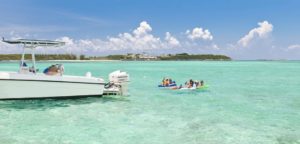 The Abaco chain of islands are a beautiful part of the Bahamas archipelago – the natural beauty flourishes. The Bahamas has been rocked by the pandemic but the country was in crisis even before COVID-19; this was due to structural deficiencies that were exacerbated by Agents of Change like Climate Change, globalization, technology and an Aging Diaspora. So the cupboards are now bare; this makes relief and refuge from these recent crises (COVID-19 and Dorian) untenable. Crisis within a crisis; failure on top of failure.
The Abaco chain of islands are a beautiful part of the Bahamas archipelago – the natural beauty flourishes. The Bahamas has been rocked by the pandemic but the country was in crisis even before COVID-19; this was due to structural deficiencies that were exacerbated by Agents of Change like Climate Change, globalization, technology and an Aging Diaspora. So the cupboards are now bare; this makes relief and refuge from these recent crises (COVID-19 and Dorian) untenable. Crisis within a crisis; failure on top of failure.
This theme – Bahamian Deficiencies – aligns with many previous commentaries; see a sample list here:
| https://goleancaribbean.com/blog/?p=19327 | ‘Missing Solar’ – Inadequacies Exposed to the World |
| https://goleancaribbean.com/blog/?p=18266 | After Dorian, ‘Fool Me Twice’ on Flooding |
| https://goleancaribbean.com/blog/?p=18038 | Bahamas 2019 Self-Made Energy Crisis |
| https://goleancaribbean.com/blog/?p=18011 | Regulating Plastics in the Bahamas – So Little; So Late |
| https://goleancaribbean.com/blog/?p=17992 | What Went Wrong? Losing the Best; Nation-building with the Rest |
| https://goleancaribbean.com/blog/?p=17118 | White Paper: A Nation in Chaos |
| https://goleancaribbean.com/blog/?p=16645 | Economic Dysfunction: Bad Partners – Cruise Lines Interactions |
| https://goleancaribbean.com/blog/?p=13856 | Economic Dysfunction: Baha Mar – Doubling-down on Failure |
| https://goleancaribbean.com/blog/?p=12911 | Bahamian Diaspora: Not the ‘Panacea’ |
But we are here to explain, not just complain.
So the problems in Abaco are bigger than just COVID, bigger than just Dorian. The systematic defects are still present and still impacting the viability of this community for the future. There is the need to reboot the Abaco eco-system.
How?
The 2013 book Go Lean … Caribbean identified the root causes of Caribbean communities’ dysfunctions and presented viable solutions: strategies, tactics and implementations. But it cautioned that the remediation work is not easy; it takes heavy-lifting. The book decomposed the societal engines to these sub-categories: economics, security and governance. Then it proposed confederating the 30 member-states of the Caribbean region so as to better leverage the solutions across a wider base – 42 million people – as opposed to just the small populations of many of the Small Island Development States. This is true for sparsely populated Abaco – 10,000-ish population; before Dorian; well before some documented defection-abandonment. Abaco is just a skinny string in the fabric of the regional society.
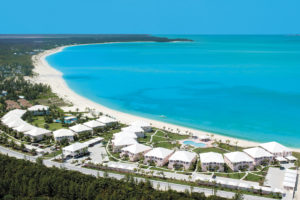 This is the urging right now; we need more than a string; we need to make the “rope” of our society stronger and better. We must … confederate, collaborate, collude, consolidate and convene:
This is the urging right now; we need more than a string; we need to make the “rope” of our society stronger and better. We must … confederate, collaborate, collude, consolidate and convene:
Many strains of strings in a rope make it stronger. – The Bible Ecclesiastes 4:12
The mono-industrial engine of tourism-alone must be retired. This community – Abaco – must diversify, whatever it takes.
So the certainty of Abaco’s failure, does not have to be so certain; it can be averted. Learning the lessons from ill-fated Nazi Germany, Abaco, the Bahamas and the entire Caribbean need a more structure alliance (allied nations) fighting along-side them for victory.
Yes, we can! Confederation – this is how … we can make our homeland a better place to live, work and play. 🙂
About the Book
The book Go Lean…Caribbean serves as a roadmap for the introduction and implementation of the technocratic Caribbean Union Trade Federation (CU), for the elevation of Caribbean society – for all member-states. This CU/Go Lean roadmap has these 3 prime directives:
- Optimization of the economic engines in order to grow the regional economy to $800 Billion and create 2.2 million new jobs.
- Establishment of a security apparatus to ensure public safety and protect the resultant economic engines.
- Improve Caribbean governance to support these engines, including a separation-of-powers between the member-states and CU federal agencies.
The Go Lean book provides 370-pages of turn-by-turn instructions on “how” to adopt new community ethos, plus the strategies, tactics, implementations and advocacies to execute so as to reboot, reform and transform the societal engines of Caribbean society.
Download the free e-Bookof Go Lean … Caribbean – now!
Who We Are
The movement behind the Go Lean book – a non-partisan, apolitical, religiously-neutral Community Development Foundation chartered for the purpose of empowering and re-booting economic engines – stresses that reforming and transforming the Caribbean societal engines must be a regional pursuit. This was an early motivation for the roadmap, as pronounced in the opening Declaration of Interdependence (Pages 11 – 13):
i. Whereas the earth’s climate has undeniably changed resulting in more severe tropical weather storms, it is necessary to prepare to insure the safety and security of life, property and systems of commerce in our geographical region. As nature recognizes no borders in the target of its destruction, we also must set aside border considerations in the preparation and response to these weather challenges.
xi. Whereas all men are entitled to the benefits of good governance in a free society, “new guards” must be enacted to dissuade the emergence of incompetence, corruption, nepotism and cronyism at the peril of the people’s best interest. The Federation must guarantee the executions of a social contract between government and the governed.
xvi. Whereas security of our homeland is inextricably linked to prosperity of the homeland, the economic and security interest of the region needs to be aligned under the same governance. Since economic crimes … can imperil the functioning of the wheels of commerce for all the citizenry, the accedence of this Federation must equip the security apparatus with the tools and techniques for predictive and proactive interdictions.
xxiv. Whereas a free market economy can be induced and spurred for continuous progress, the Federation must install the controls to better manage aspects of the economy: jobs, inflation, savings rate, investments and other economic principles. Thereby attracting direct foreign investment because of the stability and vibrancy of our economy.
Sign the petition to lean-in for this roadmap for the Caribbean Union Trade Federation.
 My thimble runneth over! – Derisive Pun based on the Biblical expression “My cup runneth over”.
My thimble runneth over! – Derisive Pun based on the Biblical expression “My cup runneth over”. For many the answer can only be: My thimble runneth over!
For many the answer can only be: My thimble runneth over! NASSAU, BAHAMAS — Prime Minister Dr Hubert Minnis yesterday revealed the government is supporting the National Food Distribution Task Force with $1 million per week to assist more than 110,000 people.
NASSAU, BAHAMAS — Prime Minister Dr Hubert Minnis yesterday revealed the government is supporting the National Food Distribution Task Force with $1 million per week to assist more than 110,000 people.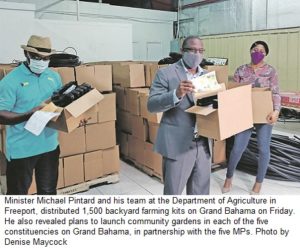 AGRICULTURE and Marine Resources Minister Michael Pintard relaunched the Backyard Farming Programme on Friday, distributing 1,500 backyard kits here on Grand Bahama.
AGRICULTURE and Marine Resources Minister Michael Pintard relaunched the Backyard Farming Programme on Friday, distributing 1,500 backyard kits here on Grand Bahama.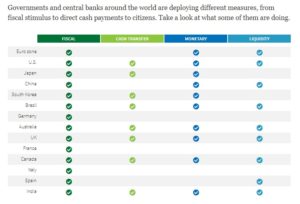
 The Bahamas has inadequate infrastructure to contend with the realities of modern life. This is all too familiar to the people in the Bahamas.
The Bahamas has inadequate infrastructure to contend with the realities of modern life. This is all too familiar to the people in the Bahamas.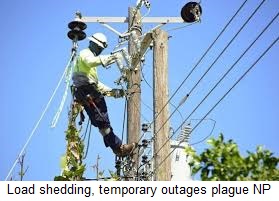 But the Bahamas’s capital city – Nassau – is having an energy crisis right now:
But the Bahamas’s capital city – Nassau – is having an energy crisis right now: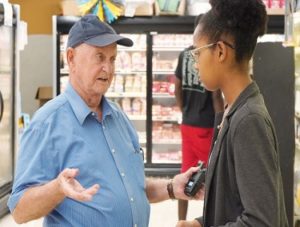 Roberts said about six Super Value locations are impacted by outages daily and the company has spent around $100,000 recently on replacing equipment damaged by the outages.
Roberts said about six Super Value locations are impacted by outages daily and the company has spent around $100,000 recently on replacing equipment damaged by the outages.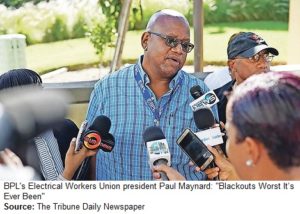
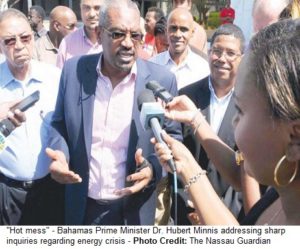
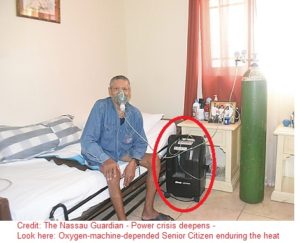

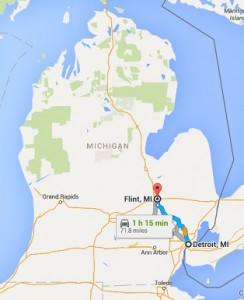
 We know that “bad actors and bad incidences” will always occur, even in government institutions, so we must be “on guard” against abusive influences and encroachments to Failed-State status. The Go Lean roadmap calls for engagement and participation from everyone, the people (citizens), institutions and government officials alike. We encouraged all with benevolent motives to lean-in to this roadmap, to get involved to effect a turnaround for the Caribbean Failed-States.
We know that “bad actors and bad incidences” will always occur, even in government institutions, so we must be “on guard” against abusive influences and encroachments to Failed-State status. The Go Lean roadmap calls for engagement and participation from everyone, the people (citizens), institutions and government officials alike. We encouraged all with benevolent motives to lean-in to this roadmap, to get involved to effect a turnaround for the Caribbean Failed-States. A Caribbean island – the Northern Bahamas island of Grand Bahama – just got hit with a once in a lifetime Category 5
A Caribbean island – the Northern Bahamas island of Grand Bahama – just got hit with a once in a lifetime Category 5 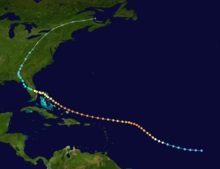
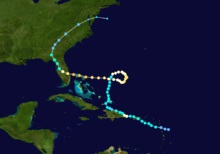
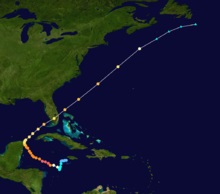

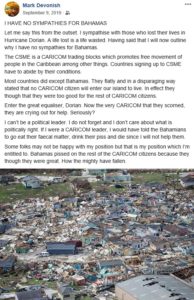
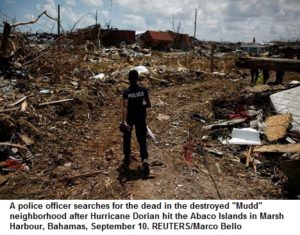
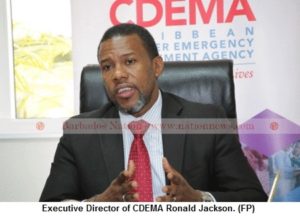
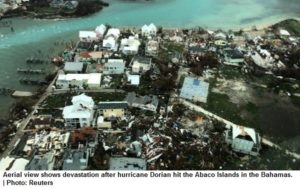

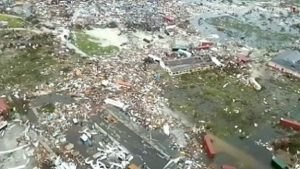




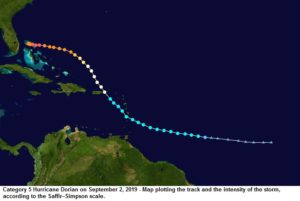
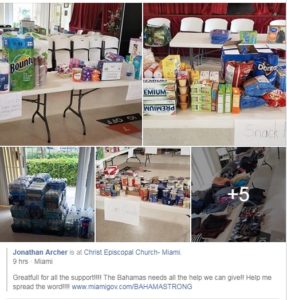




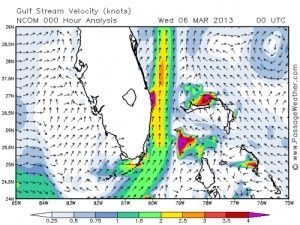
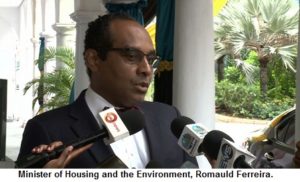 NASSAU, BAHAMAS – Minister of Environment and Housing, Romauld Ferreira, during his contribution to the 2019/2020 Budget debate on Tuesday night, said the Bahamas is expected to join more than 40 countries that have introduced a ban on plastic bags.
NASSAU, BAHAMAS – Minister of Environment and Housing, Romauld Ferreira, during his contribution to the 2019/2020 Budget debate on Tuesday night, said the Bahamas is expected to join more than 40 countries that have introduced a ban on plastic bags. So where do all the used plastics – and Styrofoam – go?
So where do all the used plastics – and Styrofoam – go? August 13th, 2018 – Saint Lucia plans to phase-out Styrofoam food service containers and plastics, both plates and cups, beginning December 1, 2018, with a total ban on their importation before the end of next year.
August 13th, 2018 – Saint Lucia plans to phase-out Styrofoam food service containers and plastics, both plates and cups, beginning December 1, 2018, with a total ban on their importation before the end of next year. Search your heart, you know it to be true. That Valedictorian from High School, if he/she is still in the Caribbean, you are puzzled right?
Search your heart, you know it to be true. That Valedictorian from High School, if he/she is still in the Caribbean, you are puzzled right? On Wednesday Mr Lloyd told educators during an event in Grand Bahama that they could not continue to rest on their laurels while the national exam results remain at a D average.
On Wednesday Mr Lloyd told educators during an event in Grand Bahama that they could not continue to rest on their laurels while the national exam results remain at a D average.
